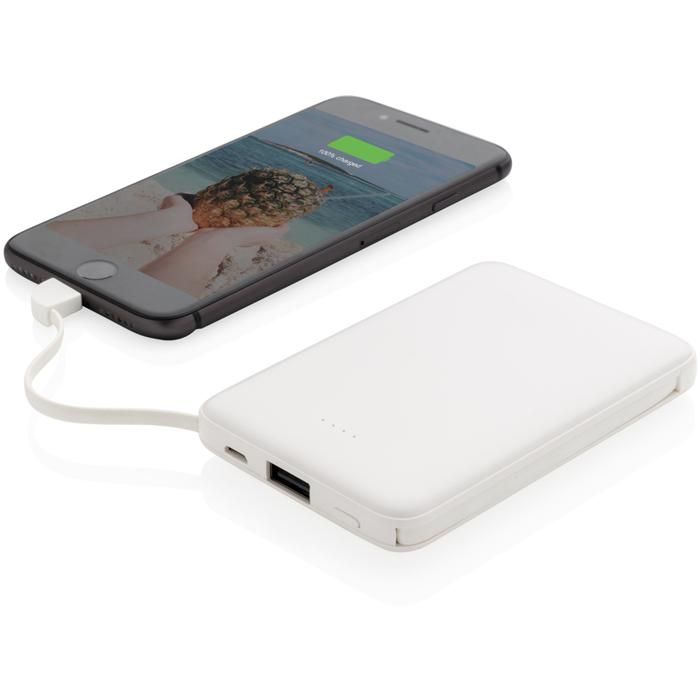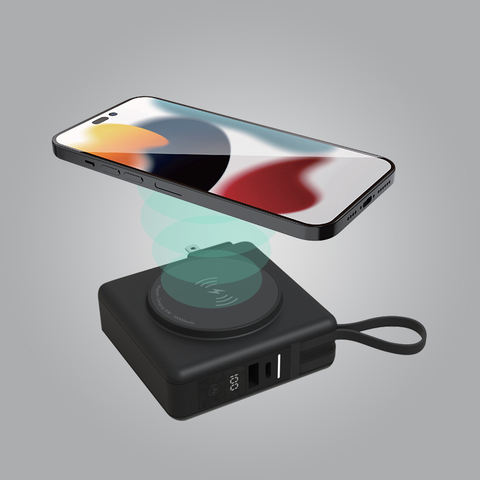
Overcharging power banks can lead to overheating, battery degradation, and safety risks, especially with lithium-ion batteries. Overcharge protection halts charging once the battery is full, preventing these issues. This feature not only extends battery lifespan but also ensures long-term reliability, making it essential for businesses purchasing portable chargers or battery packs.

How Overcharging Affects Power Banks
- Battery Degradation: Repeated overcharging reduces the battery’s capacity, affecting battery performance and charge cycles.
- Overheating: Excess heat during full charging can damage the battery and other components, increasing the risk of chemical hazards.
- Health Effect: Overheating may lead to biological hazards, including battery leakage or swelling, impacting safety.
Overcharge protection eliminates these risks by stopping charging when the battery is full.
What Does Overcharge Protection Do?
- Preserves Battery Health: Stops the charge cycle, reducing strain and preventing overheating.
- Increases Lifespan: Helps the battery maintain its charge capacity over a longer period of time.
- Prevents Potential Hazards: Minimizes risks like battery swelling, leakage, or even explosion.
By ensuring safe charging, this feature is crucial for battery packs, portable chargers, and electronic devices that rely on efficient power supply.
Why Is Overcharge Protection Important?
- Improves Battery Performance: Helps maintain the battery’s charge cycles and ensures optimal performance.
- Prevents Safety Risks: Reduces the potential hazards of overheating, leaks, and explosions.
- Extends Power Bank Lifespan: Protects the battery from long-term damage and preserves its functionality.
For bulk buyers, this protection ensures that the power banks last longer and perform consistently, making it a key consideration in a risk assessment.
Is It Safe to Leave a Power Bank Charging?
- Battery Usage: Continuous charging, even with protection, can eventually degrade battery performance.
- Risk of Chemical Hazards: Excessive charging can still lead to overheating and potential chemical hazards in the battery.
- Best Practice: Unplug the power bank once it’s fully charged to avoid unnecessary risks.
Can Overcharging Cause a Power Bank Explosion?
- Battery Swelling or Rupture: Excessive charging heats up the lithium-ion battery, leading to a build-up of internal pressure that can cause it to rupture or explode.
- Risk Mitigation: Overcharge protection reduces these risks by stopping the charging process when the battery reaches full charge, protecting both the power bank and the user.
How Do Power Banks Stop Charging When Full?
- Detect Full Charging: Identify when the battery reaches 100%.
- Stop Charging: Halt the charging process to prevent further strain and overheating.
This technology helps keep portable chargers and battery packs functioning safely over a long period of time.
Do All Power Banks Have Overcharge Protection?
- Reliability: Prevents overheating and chemical hazards.
- Safety: Minimizes risks associated with overcharging.
- Performance: Extends the battery’s charge cycles and overall lifespan.
For bulk buyers, ensuring that your power banks have overcharge protection is crucial for long-term safety and efficiency.
Conclusion
Overcharge protection is a key feature that improves the battery performance and safety of your power bank. By stopping charging when the battery is full, it helps prevent overheating, preserves the battery’s health, and extends its lifespan. For businesses purchasing power banks, this feature ensures a safe and reliable product that meets the demands of both consumers and electronic devices.







